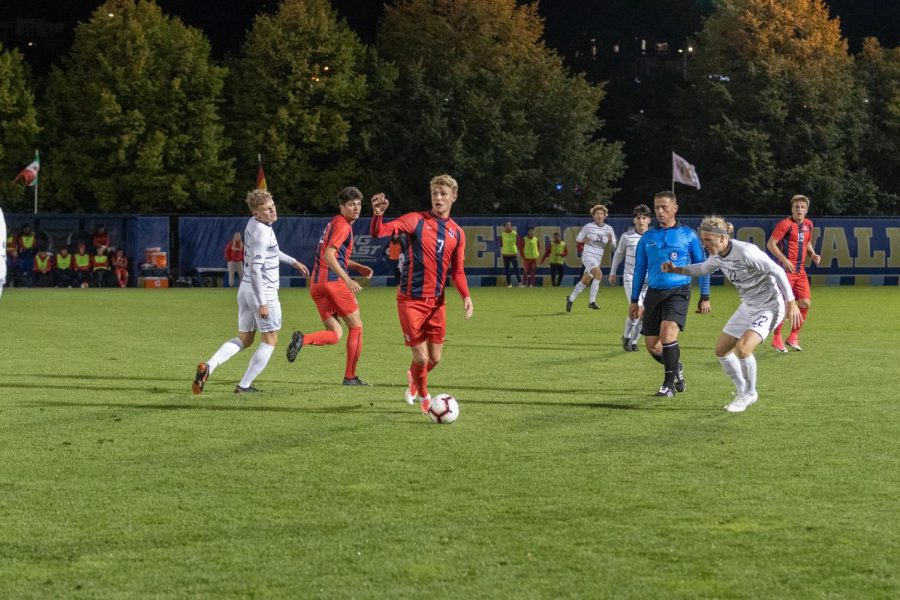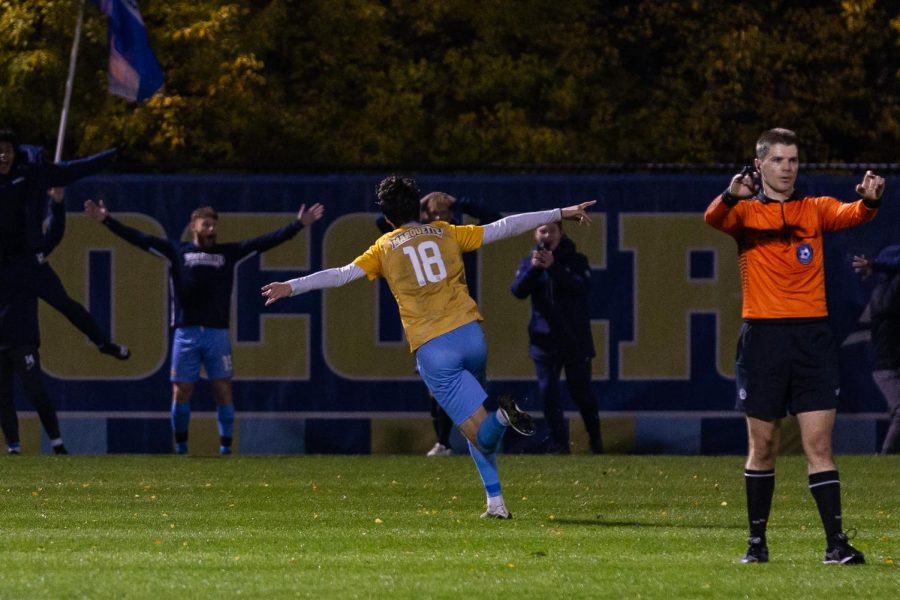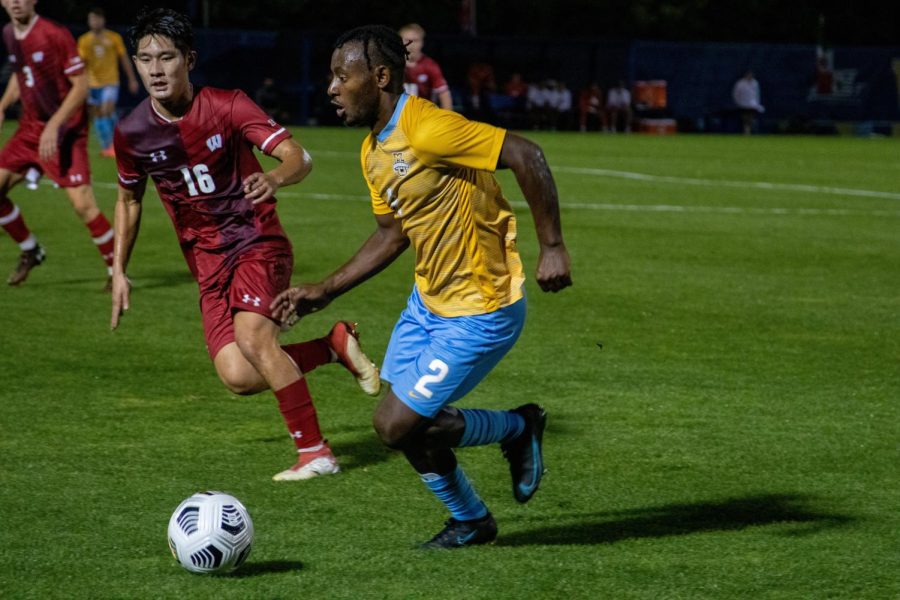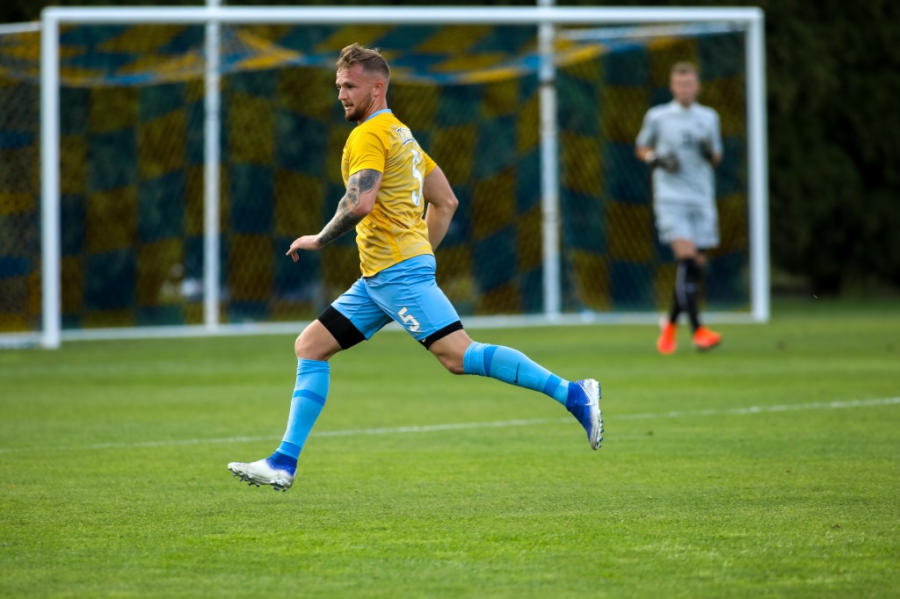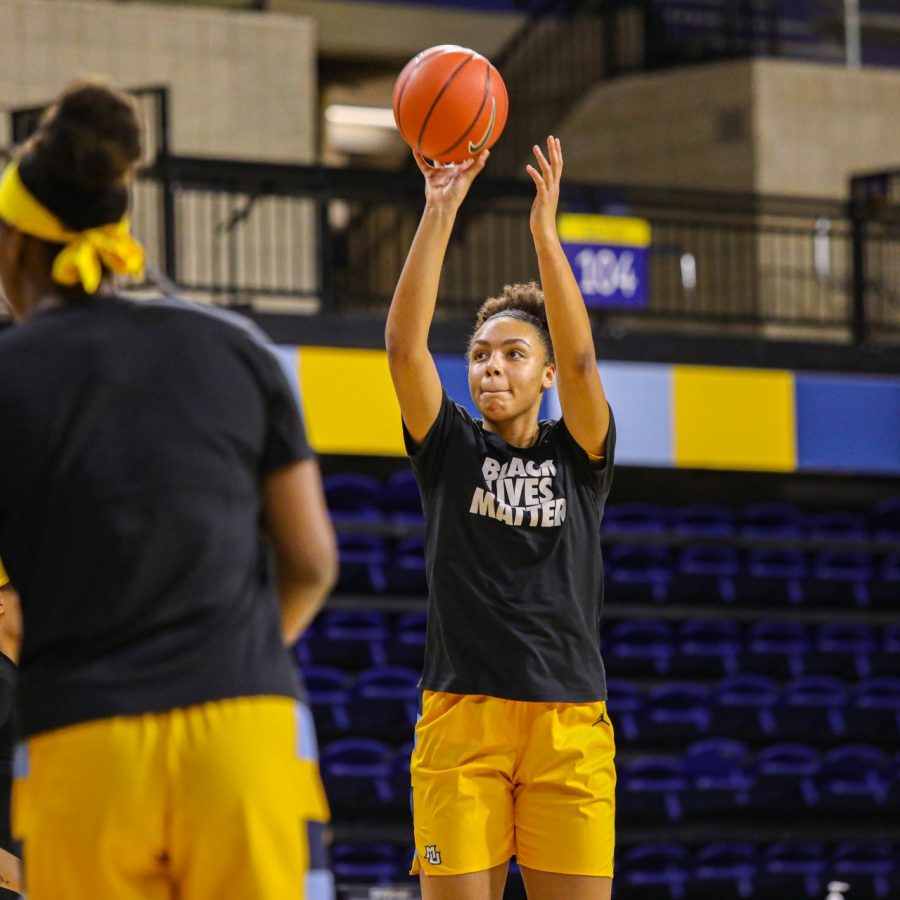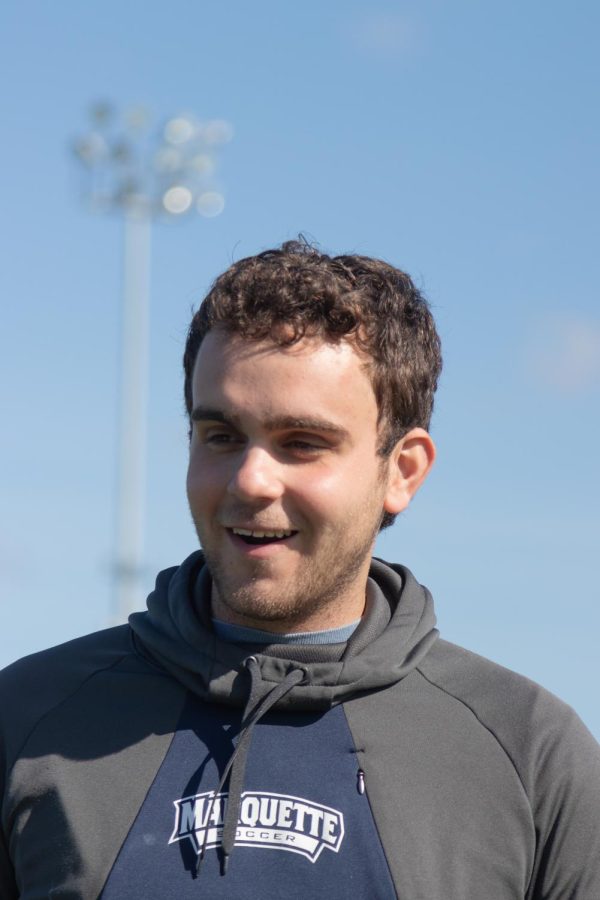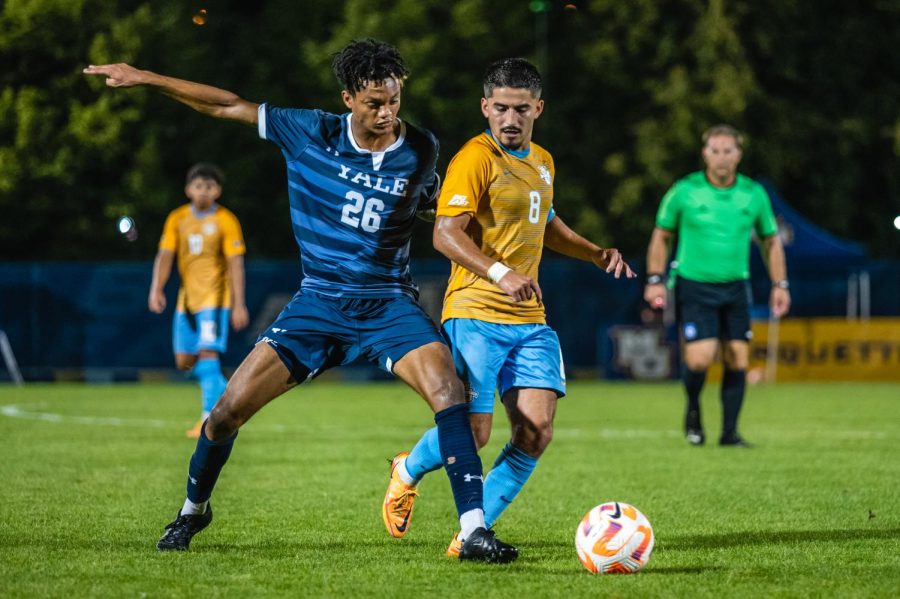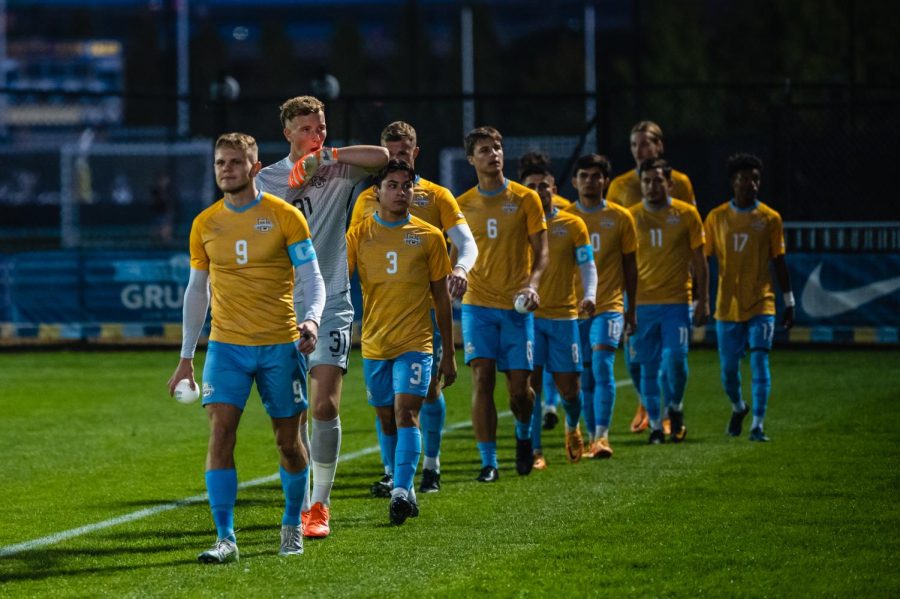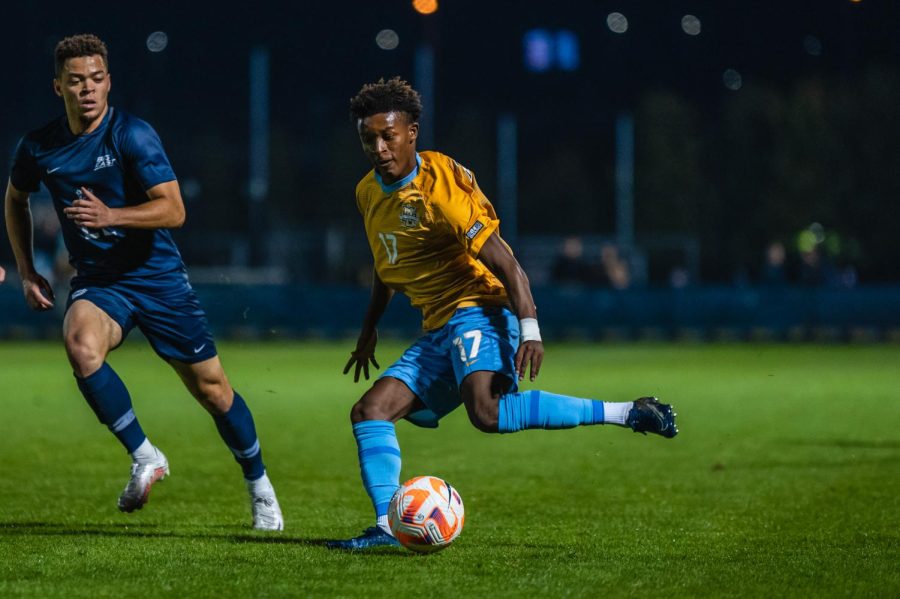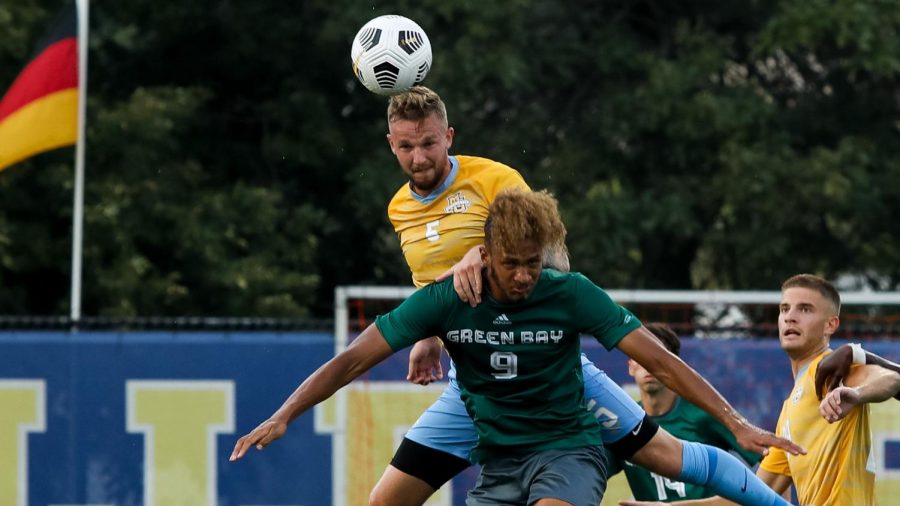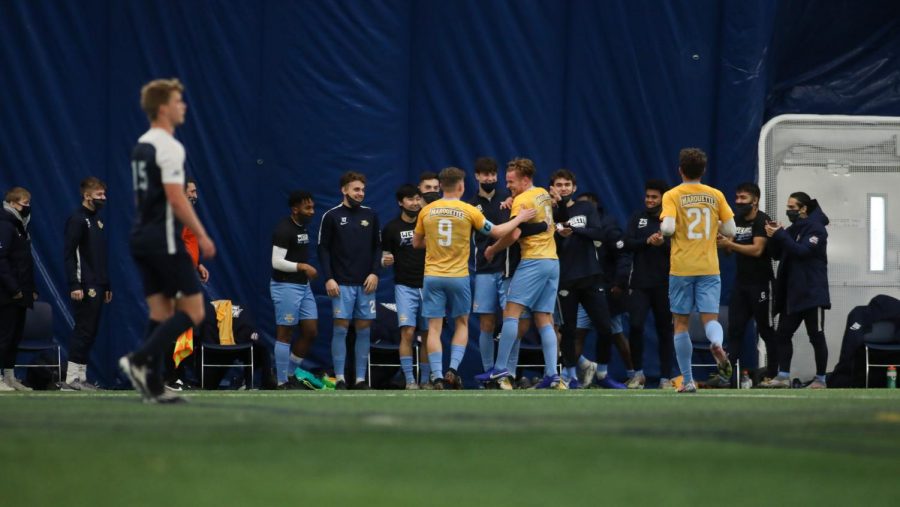When Marquette men’s soccer head coach Louis Bennett heard the news of this season’s cancellation, he was upset to find out their return to Valley Fields had to wait a few more months.
“I was obviously disappointed and concerned on how we’re going to navigate our way through the semester after hearing the news about our season,” head coach Louis Bennett said. “After my initial reaction, I felt supportive and confident that our university was making the right decision. I don’t think there is any easy option, but I think this was the most positive decision at the time that could’ve been made.”
One reason that the cancellation of the fall season came as a disappointment is because the college soccer season is already short to begin with, consisting of just under 20 games. Going off of the BIG EAST’s recent decision, the men’s team faces many unanswered questions and their potential season in the spring is still up in the air.
“At this time we don’t know what a potential spring season would look like in terms of how many games they’ll play,” junior forward Lukas Sunesson said.
The team is still prohibited from practicing together, so most of the team is working out on their own in the midst of preparing for a spring season.
“Our coaches gave each of us a workout schedule to do while we’re at home, so we’re staying fit throughout all of this,” redshirt junior midfielder Zak Wegner said. “I’ve just been trying to go on runs at home as well as trying to get back on a field as much as possible, but it’s been hard to get on (the soccer field) because of the virus.”
Most student athletes were disappointed hearing the news of the postponement, but are hopeful they will get another chance in the spring.
“I was sad and it was very unfortunate for myself and my team,” Sunesson said. “I am hopeful however that we will get to play in the spring and I’m going to just see it as the same thing as playing in the fall.”
In terms of what a season in the spring may look like, it will depend on the availability of a COVID-19 vaccine, which is currently in the developmental stages according to the Center for Disease Control. Sunesson and Wegner both talked about how professional soccer leagues are handling their seasons and how they can bring certain aspects to the college level.
Professional leagues employed tactics such as isolation and a mandatory 14-day quarantine for those that tested positive. The German Bundesliga, English Premier League and Spanish La Liga were among the leagues that saw success using these methods.
“Limiting or not allowing any fans and having everyone outside of the pitch wearing masks,” Sunesson said. “Those simple things are going to be the key to having a season eventually.”
Wegner talked about how regulations made by the organizations are important, but with that, a lot of responsibility falls on the players. There is only so much one can do on the field in a sport that does not make it easy to distance oneself from others.
“It’s important to do all the right things outside of playing on the pitch,” Wegner said. “Making sure you’re surrounding yourself with people that are healthy is what will keep yourself and your entire team safe.”
As for what’s next for the Marquette men’s soccer team, only time will tell. For now though, the team is optimistic for a future season.
“I’m an optimist,” Bennett said. “I always try to find positive ways of getting stuff done, focus on what we can do, not what we can’t. If we’re just doing training six feet apart, that’s what we’re doing.”
This story was written by Matt Yeazal and Sam Arco. They can be reached at matt.yeazel@marquette.edu and sam.arco@marquette.edu or on Twitter @MJYeazel and @sam_i_am119.

